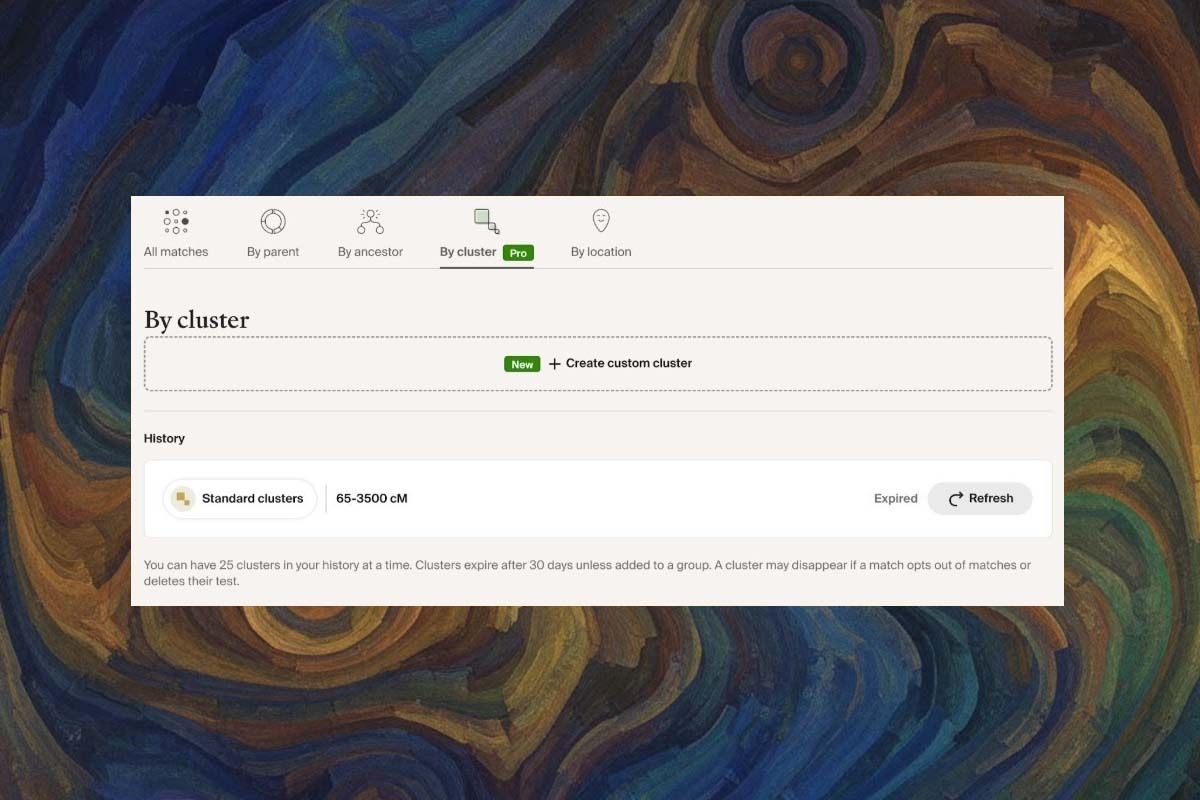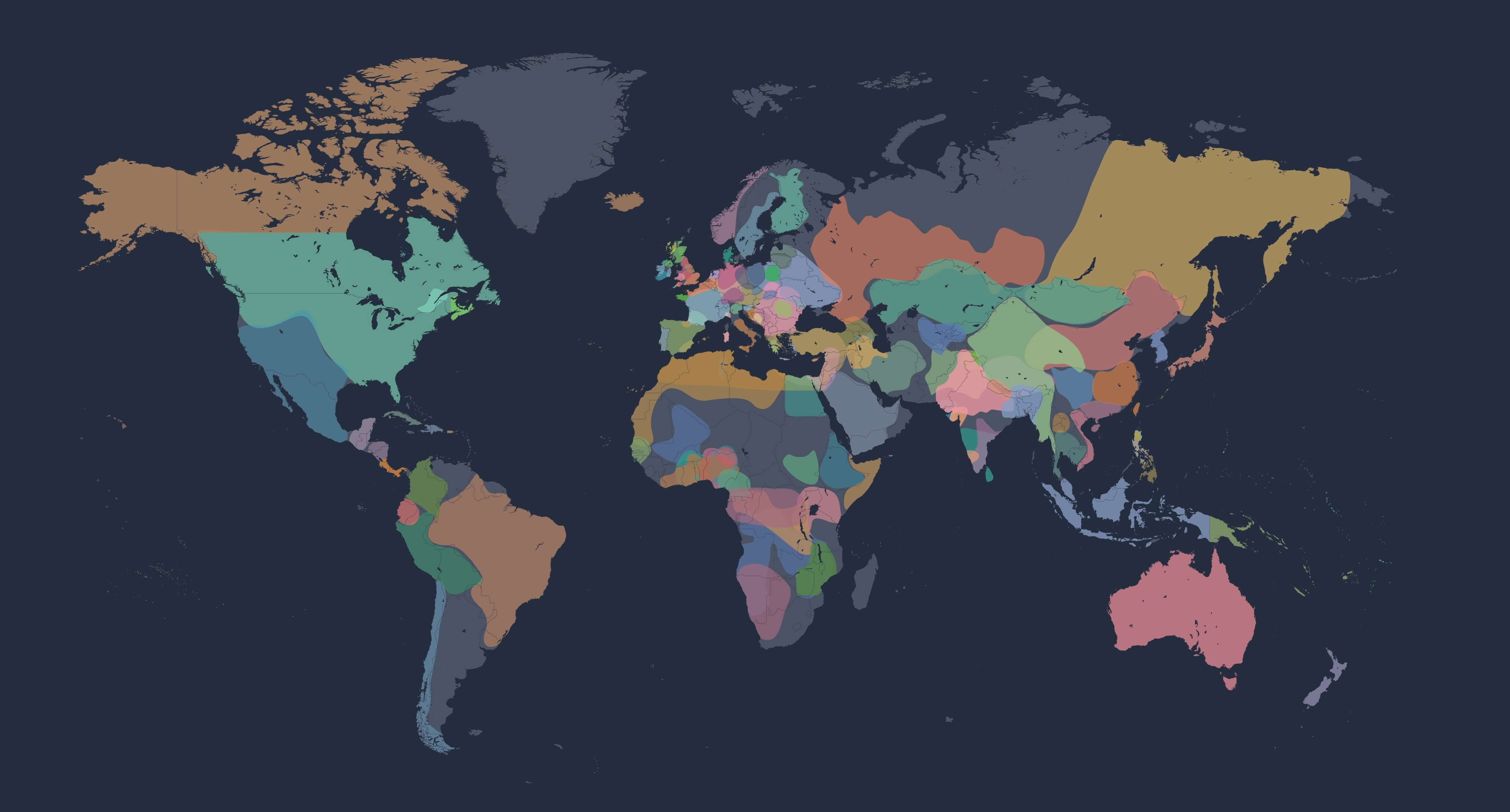The world’s largest online family history resource - Start now
-
Honoring the Unforgettable: A Personal Path to Remembrance -
Using New Ancestral Journeys to Explore Your Latin American and Iberian Roots -
Family Traditions and Musical Expression -
The Infinite Explorer: New Series on the Secret Threads that Shape Our World
GET THE LATEST
New posts + monthly newsletter.
GET THE LATEST
New posts + monthly newsletter.
Key Takeaways
- AncestryDNA has launched 73 new and updated regions, giving more detail for those with UK and Irish heritage.
- Your ethnicity estimate may now be more specific, breaking down broader areas like 'England & Northwestern Europe'.
- The free update uses a larger reference panel to more accurately pinpoint your ancestors' potential locations within Britain.
This month Ancestry has launched 73 new and updated AncestryDNA® communities for the UK, as a part of a global release of over 225 new regions.
This is an exciting next step in the journey we are taking with our customers, as we continue to discover more about how our DNA can add to our knowledge and understanding of our individual family histories.
The update was based on a huge amount of data provided by scientists, consequently allowing us to provide more refined and accurate communities for our test takers. Each of these 73 new and updated regions contains genetically identifiable communities and our researchers have been working to provide information for each of these regions which is specific to those communities.
The information for each genetic region generally covers the period 1700-1950 and begins with an overview of the background and people who lived there during that time. There are then more detailed sections, each covering timespans of 25 to 50 years. You can expect to learn about the occupations and industries that were important to the local economy, about the living conditions and diet of ordinary people living in those areas. There is likely to be some discussion of what it was like to be a child at that time and place, at what age children were expected to work and the educational opportunities that were available to them.
Events in the wider world, as well as on a national and a local level all influenced the lives and decisions made by our ancestors and you will gain an understanding of events on all these levels that proved significant to each of these communities. This is particularly useful to those of us whose ancestors moved away from their birthplaces; it helps us understand why they might have taken the decision to move away from friends and loved ones, to sometimes risk dangerous journeys and to step into the unknown.
For example, you might discover a link to family near Greater London and learn where your ancestors lived during the bustling Industrial Revolution, which began in the late 1700s. Game-changing advances in agriculture and technology spurred countless countryside merchants, bakers, butchers, brewers, tailors, and other rural workers to relocate to opportunity-filled cities, like London, laying the foundation for some of England’s greatest modern cities.

Particular attention has been paid to the migratory routes that have been revealed or corroborated by study of the DNA results. It is fascinating to be able to follow the movements of groups of people through DNA results. We can sometimes see that people from one particular area or city in the UK moved in significant numbers to another particular area or city, whether that be in the UK or elsewhere in the world such as a particular city in Canada, USA, Australia or New Zealand. Starting a new life somewhere new must have been very daunting for our ancestors and so it is comforting to think that they went to places where they already had a few friends or relatives and perhaps a promise of work.
These new genetic regions could potentially offer a breakthrough for those of us with brick walls. If you don’t know where in the UK your ancestor came from, your improved ethnicity estimate may point to one of these regions. Learning more about that region may highlight a particular area or city from which a known migratory route began, to a place you know your family lived in. Don’t forget to go back to your DNA matches and see if any of them have origins in that place too.
The world of genetic genealogy is moving at such a fast pace. We know it will continue to evolve and refine and Ancestry is determined to remain the leader in using this science to help family historians. We are really excited to share this next step on that journey with you and hope that it will offer you a greater understanding of your ancestor’s lives and, just maybe, a breakthrough.
This blogpost was written by guest writer, Joanne Penn from Ancestry ProGenealogist. Joanne specialises in English research, early palaeography, and breaking down brick walls.
























